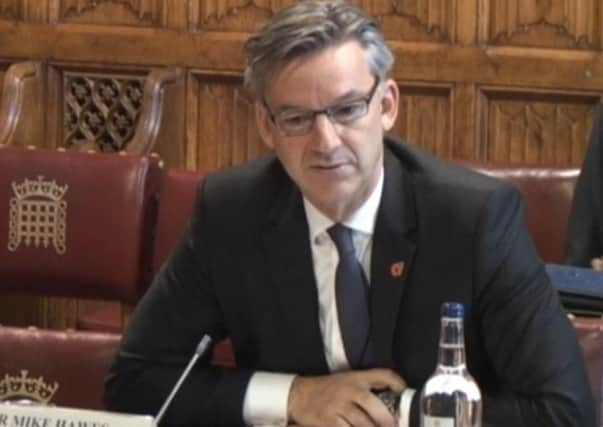Brexit tarriff would be '˜critical challenge' for North East auto industry


Society of Motor Manufacturers and Traders chief executive Mike Hawes was answering questions from the House of Lords’ EU External Affairs Sub-Committee.
UK-built cars contained an average of 41 per cent of home-produced parts, with around 60 per cent of components produced abroad, mostly in the EU, he told the committee.
Advertisement
Hide AdAdvertisement
Hide Ad“Currently there are no tariffs on parts or vehicles and that is very, very important for the industry,” said Mr Hawes.
“Any tariff is going to add costs. We are an incredibly lean and efficient industry, the margins the industry operates on are wafer-thin.
“Any tariff immediately is going to be ‘a critical challenge’ to a company, especially when their competitors may not be subject to those tariffs.”
It would be months before the full impact of the vote to leave the EU was felt, said Mr Hawes.
Advertisement
Hide AdAdvertisement
Hide Ad“It is difficult to gauge the immediate effect other than effects that have been driven by foreign exchange rate shifts,” he said.
“There was never going to be an immediate ‘you wake up on the 24th of June and plants were shutting or contracts were going to move differently,’.”
Companies were bidding for contracts years in advance, and uncertainty over the UK’s relationship with the EU would make that more difficult: “Where a contract is coming up for a new model in the next three or four months, this is a challenge because you are trying to understand what your future costs are going to be but you have to make that decision now in terms of pitching and you are in competition with other suppliers around Europe or, indeed, around the world.
“So the immediate challenge for them is first and foremost what effect the exchange rate is having and again, contracts tend to be fixed price, so the impact of that won’t be seen immediately but will be seen in time.”
Advertisement
Hide AdAdvertisement
Hide AdLarge companies such as Nissan would also ‘hedge’ their contracts to ensure they knew in advance what their costs would be, meaning the full knock-on effect would only become obvious down the line.
“Those hedging agreements take a while to unwind, so the effect of the foreign exchange shift isn’t seen immediately but will be seen in due course and certainly into 2017,” said Mr Hawes.